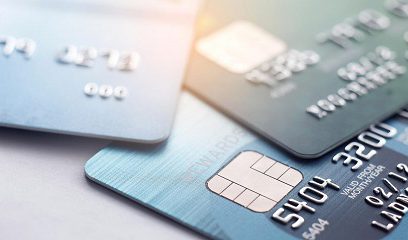The ongoing pandemic has provided many frustrated entrepreneurs with the time and focus to actually start their own businesses. And with many of us already being freelancers or self-employed, it’s important to understand the benefits of keeping your personal and work finances separate.
But not all bank accounts are the same, and we’re here to ensure you choose the right bank account for your individual needs.
What’s the difference between a personal and Business Bank Account?
There’s nothing particularly special about a Business Current Account – at its most basic level it’s just like your personal bank account, but it’s one you open solely for your business income and expenditure. But as your business grows, and your finances become potentially more complex, you can begin to enjoy benefits such as invoicing, payroll management, as well as assistance such as accounting and tax returns.
But do I really NEED a Business Current Account?
This is a commonly asked question amongst our early stage startup customers here at Swoop, and we want to be as clear as possible. You definitely DO need an account if you’ve set up your business as a company, partnership or trust in Australia. This means that your business is legally separate from you, so you shouldn’t be using a personal account for its expenses.
Other businesses, including sole traders and freelancers, don’t necessarily need a business account, however it is still advisable to save you from juggling your business’s income and expenditure with your own, especially if your self-employment income is the lion’s share of your total income.
In a nutshell, if you’re offsetting your business expenses against income, then you really ought to be looking for a separate business account.
Opening a Business Current Account – the good and the bad
Let’s start with the good. There’s the obvious stuff you already know about such as setting up and making payments, receiving funds, and making debit card transactions. But by keeping your business income and expenses separate you’ll find it a whole lot easier when it comes to doing your tax return. The information and numbers you need are all in one account, saving you having to trawl through your personal expenses trying to determine what was and wasn’t a legitimate business expense.
This may not seem a huge benefit right now, but if ATO decide to investigate your business finances, it means they have all they need in one place and won’t require your personal finances to be reviewed too.
Another consideration when looking at ‘the good’ is by opening a separate Business Bank Account, you won’t break your personal bank’s terms and conditions. A Personal Current Account is exactly that – for personal use. And most banks don’t actually allow you to use it for business transactions.
However, the biggest benefit to having a Business Current Account is that you’ll build your business credit rating. If you decide to apply for a business loan or business credit card then it makes far more sense to have built some credit history for your business. Not having a Business Account will mean you’re not eligible for many business financial products.
What are the downsides of opening a Business Bank Account?
Now you know why you SHOULD open an account, there are a few factors worth considering. The most obvious is that many banks will charge you fees. However, these fees come in different shapes and sizes and by carefully comparing and selecting the most appropriate account for your needs, you could find you’re not paying anything at all.
Swoop keeps an updated table of the best Business Bank Accounts for startup businesses, so it’s definitely worth a visit.
The only other potential downside, which is not really much of a downside, is that you’ll have two accounts to manage, so will need to be a little more organised. More cards, more passwords – but it’s well worth a little extra admin now to save you time and effort in the future as identified above.
Which is the best Business Current Account for me?
Firstly, decide what you want from your bank account. Do you need accounting help? Do you need to make a lot of cash deposits? Do you need to make international transactions? (If yes, you should check out online foreign exchange providers before using your bank). Do you need to pay in cheques? Do you want a high street branch? Whatever your individual business needs are, it is important to compare the available Business Current Accounts and match them with these needs.
As a final observation the new online banks are working incredibly hard to keep costs down, service levels high and many provide hugely appealing perks and benefits. So, think beyond the high street, don’t just bank where you’ve always banked because it feels easier – shop around, match your bank to your business and get the best Current Account for you!







 yet? Register here!
yet? Register here!